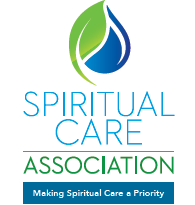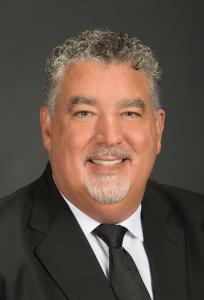
Addressing the Mental Health Impact of the COVID Pandemic on the Elderly
No. 3 in Series: Spiritual Care Association Committed to Developing Resources, Tools for Chaplains to Become Better Educated in Mental, Behavioral Health Issues
NEW YORK, NEW YORK, UNITED STATES, June 1, 2022 /EINPresswire.com/ -- In the United States, older Americans have suffered the highest rates of death and disability from COVID infections of any age group (1). Three quarters of all COVID deaths in the U.S. have been people 65 and older. In December 2021, the New York Times reported the grim statistics: “One in 100 older Americans has died from the virus. For people younger than 65, that ratio is closer to 1 in 1,400” (2).The mortality rate among seniors is sobering, but psychosocial effects of the pandemic on those who survived is likely to impact this population for years. Common factors negatively impacting their mental wellbeing include anxiety, depression, isolation, loneliness, grief, and lingering medical complications following COVID (3). Even so, there are indications older people are less likely to seek professional help than other age groups. For example, AARP reports a study that shows only one in eight older Americans who have experienced a decline in their mental wellbeing have reached out to a mental health professional for help, likely because of costs, unavailability of resources, and stigma involved (4). The severe medical complications of COVID often occur in conjunction with diseases common in older persons such as diabetes, vascular disease, and chronic lung diseases (3). Older persons will experience lingering symptoms of long COVID like younger individuals, but there are other consequences that may affect older Americans. For instance, a 75-year-old person with persistent memory fog may also silently worry about whether they are developing dementia.
COVID, its diagnosis and treatment have shone a spotlight on healthcare disparities in this nation experienced by vulnerable groups such as the elderly, the poor, and those who belong to racial minority groups. AARP reported on a Kaiser Health News analysis of federal data in 2020 that found older Black Americans died of COVID between 3.5 and 5 times more often than white people in their same age group (5). The report goes on to predict the impact of the pandemic in communities of color will persist for years, not just because of the higher mortality rate but also because of the “economic devastation suffered by these families.”
Older persons living in nursing homes and assisted living facilities suffered even greater social isolation than the general population. Older, medically compromised residents were distressed by their inability to maintain close contact with their loved ones for fear of contracting the illness. The social isolation was particularly difficult for those older persons with severe health problems or cognitive disabilities living in facilities that strictly forbade visitors from the outside. In skilled nursing facilities, evidence suggests older residents of color were disproportionately impacted (6). Many disabled people who lived in residential programs lost the important support of day programs and social therapies. In addition, they had to cope with the disruption of their normal biomedical support as healthcare delivery systems experienced the loss of caregivers in long term care facilities and many shifted to telehealth services.
In the U.S., many elders live alone or depend on family for support. Most caregivers for older persons are women who also have family responsibilities and demands of employment. For example, a registered nurse may have been caring for children at home, elderly parents in their own homes, and COVID patients at work. These devoted women are the backbones of our caregiver networks, and many have been strained to breaking point during the pandemic. During the height of the pandemic, many elderly people no longer experienced the level of care they used to receive from overburdened family caregivers because of competing commitments. The flood of online misinformation has worsened this burden, especially for older people who may be less skilled at identifying online medical misinformation.
The elderly, as well as their friends, families and caregivers have experienced enormous stress, loss, and grief over the last two years of the pandemic. Grief in the elderly is often complicated by failing health, a narrowing circle of friends and peers, waning cognitive abilities, and difficulties accessing bereavement services. Researchers have also expressed concern for prolonged grief disorder (PGD) in older adults in the aftermath of COVID. PGD can occur when normal adaptations to grief get stalled by the extreme circumstances of the pandemic, such as the sudden death of a loved one, the inability to be with them in their last days, and prohibitions of funerals and other normal bereavement activities (7). However, other studies find indications that complicated reactions to grief in the elderly may be offset by elder “wisdom,” a personality trait often combining aspects such as compassion, self-reflection, acceptance of uncertainty, and a sense of spirituality among others (3).
Another important coping factor for many elders is their faith or belonging to a religious tradition. A Pew Research study conducted in 2020 found a quarter of all U.S. adults claimed their faith had become stronger because of the pandemic, while just 2% said it had become weaker. This study also indicated stronger faith in Black Americans, women, and older adults (8), an important factor for chaplains and faith leaders to bear in mind.
As experts in our fields of spiritual care and mental health, we are convinced that well-educated professional healthcare chaplains and other properly trained spiritual care providers can play an important role in the healing of older people who are suffering mental and emotional distress due to the pandemic. To that end, the Spiritual Care Association is committed to developing resources and tools chaplains need to be become better educated around issues of mental and behavioral health.
Reverend Eric J. Hall, DTh, APBCC, and Richard E. Powers, M.D.
References
(1) https://www.apa.org/topics/covid-19/research-ageism
(2) https://www.nytimes.com/2021/12/13/us/covid-deaths-elderly-americans.html
(3) Vahia IV, Jeste DV, Reynolds CF. Older Adults and the Mental Health Effects of COVID-19. JAMA. 2020;324(22):2253–2254. doi:10.1001/jama.2020.21753
(4) https://www.aarp.org/research/topics/health/info-2021/covid19-mental-health.html
(5) https://www.aarp.org/health/conditions-treatments/info-2020/older-african-americans-coronavirus-risk.html
(6) https://jamanetwork.com/journals/jamanetworkopen/fullarticle/2776102
(7) Goveas JS, Shear MK. Grief and the COVID-19 Pandemic in Older Adults. Am J Geriatr Psychiatry. 2020 Oct;28(10):1119-1125. doi: 10.1016/j.jagp.2020.06.021. Epub 2020 Jun 27. PMID: 32709542; PMCID: PMC7320675.
(8) https://www.pewresearch.org/fact-tank/2020/04/30/few-americans-say-their-house-of-worship-is-open-but-a-quarter-say-their-religious-faith-has-grown-amid-pandemic
Molly Sabala
HealthCare Chaplaincy Network
+1 212-644-1111
email us here
Visit us on social media:
Facebook
Twitter
LinkedIn
EIN Presswire does not exercise editorial control over third-party content provided, uploaded, published, or distributed by users of EIN Presswire. We are a distributor, not a publisher, of 3rd party content. Such content may contain the views, opinions, statements, offers, and other material of the respective users, suppliers, participants, or authors.




